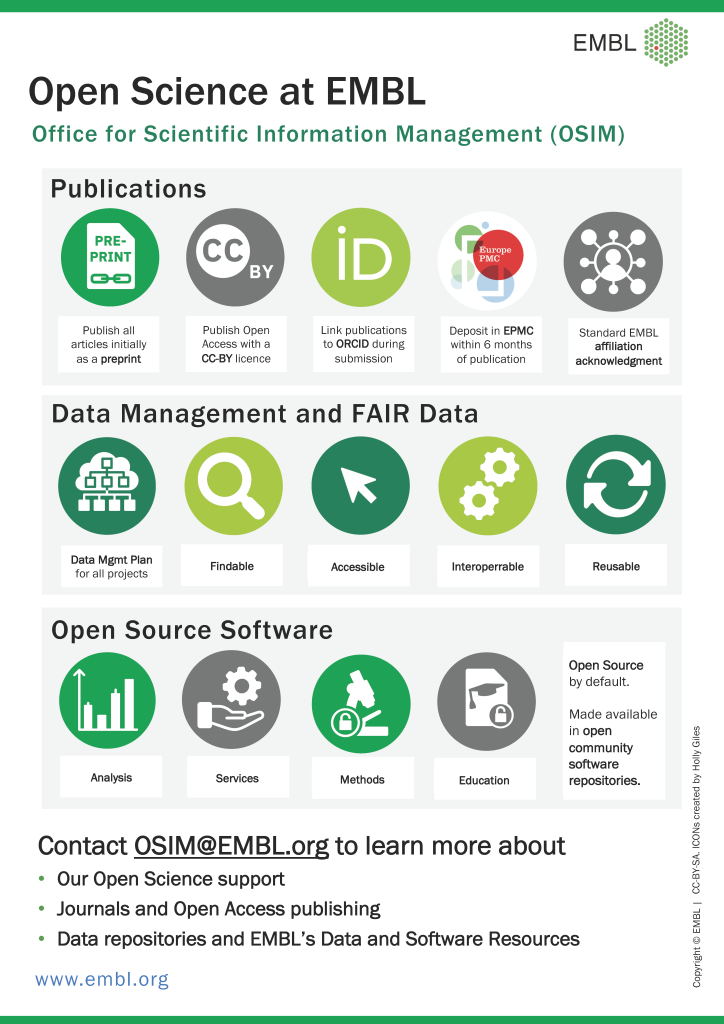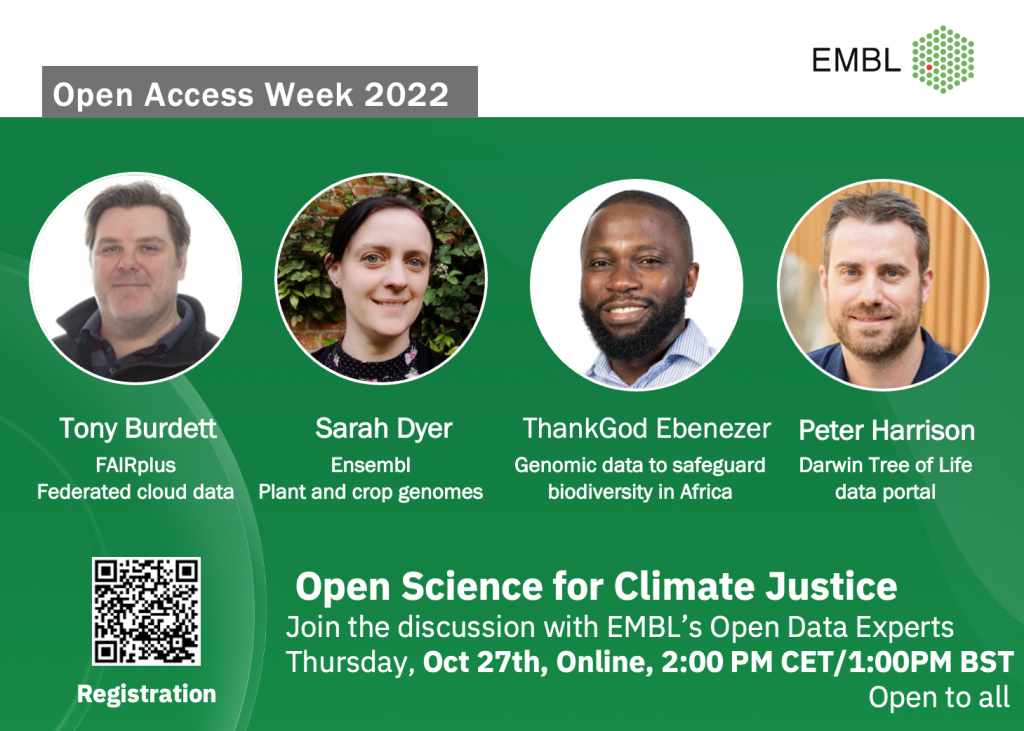Supporting EMBL researchers to follow Open Science best practices
The first year of Open Science Support team
As a part of EMBL’s commitment to promote transparency, trust, and inclusive research in life sciences, EMBL released its Open Science Policy in December 2021, and began implementing it in January 2022. The policy seeks to make scientific publications, research data, and software open, and to adopt the FAIR principles. The accompanying Open Science Implementation Guidelines aim to provide guidance for following policy requirements. In addition, a new Open Science Support Team (as a part of OSIM) supports EMBL staff to help them understand and follow the new Open Science Policy.

From 1 January, we began supporting EMBL lead authors with open access manuscript publishing through a central budget for open access fees (i.e., article processing charges or APC). We began following the progress of Open Science Policy adoption at EMBL as part of our new APC workflow. We request the information regarding preprints, data management plans, open data, and open source software as a part of the approval process, and we’ll continue to improve this process to increase efficiency and reduce the amount of work for authors.
Together with EMBL Internal Training, ARISE, and Bio-IT, we organised a series of hands-on training sessions about open science and FAIR principles for data and software, aiming to help EMBL researchers develop draft Data Management Plans for their specific projects. We also began one-on-one advising, and continue to encourage you to send questions and requests to OSIM@EMBL.org.

In line with Open Access Week 2022’s theme, #OpenForClimateJustice, we connected with open science experts at EMBL to showcase their pioneering work in open and FAIR Data and organised a webinar that included EMBL-EBI Bioinformaticians Tony Burdett, Sara Dyer, ThankGod Ebenezer, and Peter Harrison. We spoke about open science’s real impacts on biodiversity preservation on a worldwide scale. To learn more about this event, you can read the summary blog and watch the recordings here. The open FAIR tools and platforms developed at EMBL are enabling environmental research, collaboration, and open science capacity building on a global scale.
We look forward to continuing the successful collaboration with EMBL researchers and staff in 2023, to supporting and promoting open science and to optimising existing processes.